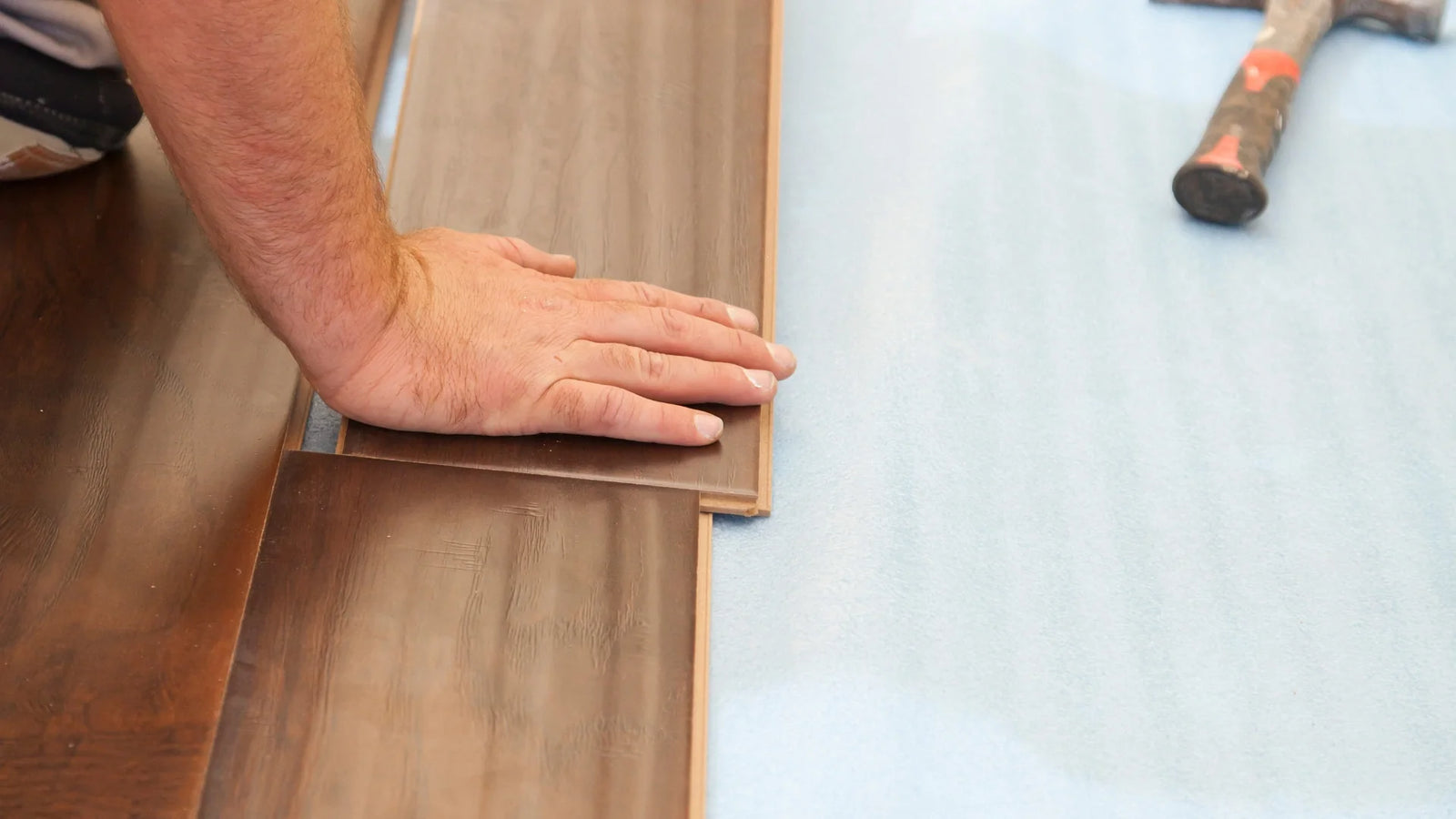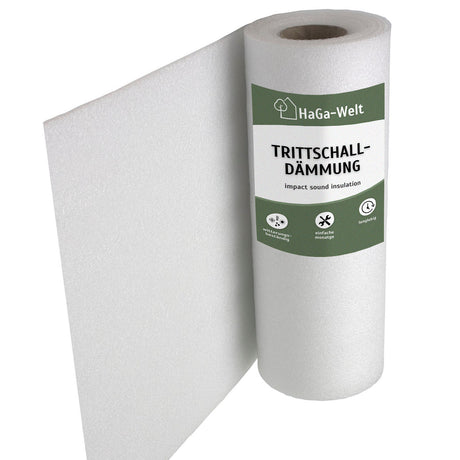Impact sound insulation plays a key role in increasing living comfort and minimizing noise in buildings. It's especially important for dampening footsteps, furniture movements, and other vibrations transmitted through the floor. In this article, you'll learn which materials are suitable for impact sound insulation and how to find the optimal solution for your needs. We also answer frequently asked questions about impact sound insulation.
What is the best impact sound insulation?
The choice of the best impact sound insulation depends largely on the flooring used and the specific requirements. Foam underlays and cork are particularly suitable for vinyl and laminate flooring, as they effectively dampen impact sound while increasing walking comfort. Mineral wool and wood fiberboard offer excellent impact sound insulation under floating screed and solid floors. Underfloor heating systems require special insulation materials that ensure both good sound insulation and efficient heat transfer.
What is impact sound?
Impact sound is caused by mechanical impacts on the floor, such as walking or moving furniture. These sounds are transmitted as sound waves into adjacent or lower rooms. Effective impact sound insulation reduces this noise transmission by absorbing the sound and inhibiting its further transmission.

How high should the impact sound insulation be?
The thickness of the impact sound insulation depends on the specific floor covering and the structural conditions. For laminate or vinyl, insulation underlays with a thickness of 2 to 5 millimeters are usually sufficient to achieve effective sound reduction. For floors subject to higher loads or in multi-story buildings, impact sound insulation of 5 to 10 millimeters may be appropriate. Thicker insulation is often used, especially for screed floors, to achieve maximum sound reduction.
Why is impact sound insulation important?
Effective impact sound insulation offers many advantages:
- Noise reduction: Good impact sound insulation significantly reduces disturbing noises such as footsteps or bumps, which is particularly beneficial in apartment buildings or multi-story single-family homes.
- Increased living comfort: A quiet living environment in which impact noise is minimized increases well-being and quality of life.
- Increased property value: Properties with good sound insulation, especially with high-quality impact sound insulation, are often more sought after on the market.
Is impact sound insulation also thermal insulation?
Yes, many impact sound insulation materials also offer thermal insulation. Cork, mineral wool, and wood fiberboards are particularly known for their ability to not only provide sound insulation but also retain heat in a room. However, when used with underfloor heating, care should be taken to ensure the insulation does not impede heat transfer. Special impact sound insulation for underfloor heating systems is designed to simultaneously dampen impact sound and distribute heat evenly throughout the room.
Can vinyl flooring be installed without impact sound insulation?
Theoretically, vinyl flooring can be installed without impact sound insulation, but this is not recommended. Without impact sound insulation, the floor can sound loud and unpleasant, as footsteps or other movements transmit the sound directly into the subfloor. Impact sound insulation is essential, especially for floating vinyl floors, to improve both the noise and the feel when walking.
Which impact sound insulation compensates for unevenness?
Wood fiberboard and cork underlays are particularly suitable for leveling uneven surfaces. These materials have the ability to compensate for minor unevenness in the subfloor, thus ensuring a uniform surface. Wood fiberboards are particularly dimensionally stable and offer a combination of impact sound insulation and unevenness compensation, making them ideal for laminate and wood flooring.
Which impact sound insulation for underfloor heating?
When using underfloor heating, it is important that the impact sound insulation has high thermal conductivity to avoid compromising the heating system's efficiency. Specially developed insulation materials, such as special foam mats or thin mineral insulation materials, offer both sound insulation and good heat transfer. These materials prevent excessive heat buildup and ensure even heat distribution throughout the room. When using underfloor heating, it is always advisable to choose products that are explicitly designed for this purpose.

Impact sound insulation in conjunction with floor coverings
Depending on the floor covering, different materials and methods for impact sound insulation are recommended:
- Impact sound insulation for vinyl: Because vinyl flooring is relatively thin, it requires effective impact sound insulation to dampen noise. Foam mats or cork underlays are suitable solutions.
- Impact sound insulation under laminate: Laminate floors naturally have a hard surface that amplifies noise without additional insulation. Impact sound insulation made from cork, wood fiberboard, or foam underlay is ideal for effectively reducing sound.
- Impact sound insulation and underfloor heating: With underfloor heating, it's especially important to use insulation materials that both reduce impact sound and don't compromise the heating system's efficiency. Specially developed insulation materials provide good sound insulation without hindering heat exchange.
Conclusion
Impact sound insulation is an important factor that significantly improves living comfort by reducing noise and often also providing thermal insulation. Depending on the flooring—whether vinyl, laminate, or combined with underfloor heating—there are suitable solutions to ensure optimal sound insulation. Unevenness can be compensated for with certain insulating materials, such as wood fiberboard, while special impact sound insulation for underfloor heating systems efficiently transmits heat. Choosing the right impact sound insulation not only increases living comfort but also sustainably increases the value of a property.





